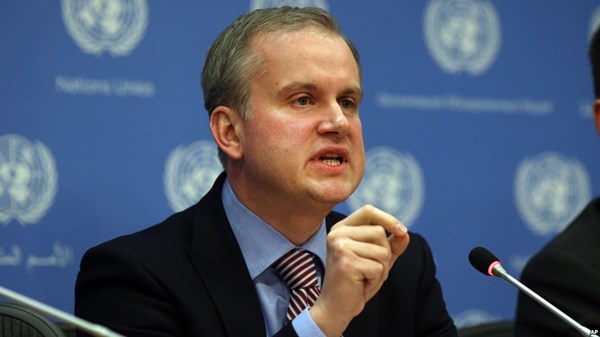Ukrainian politician: Canada's chairmanship at the G7 is a unique opportunity to focus attention on Russian aggression against Ukraine
Under the leadership of Canada, which has been chairing the Group of Seven (G7) since the beginning of the year, a new international platform should be launched to discuss the situation in the Russian-annexed Crimea and Donbas territories. Danylo Lubkivsky, former Diplomatic Adviser to Ukrainian Prime Minister Arseniy Yatsenyuk (2015-2016) and Deputy Foreign Minister of Ukraine (2014), stated this an article he wrote for the Kyiv-based Day (Den) newspaper.
Lubkivsky noted that beginning January 1, Canada began its annual chairmanship in one of the most influential world associations - the Group of Seven (G7), an informal club of the seven most developed democracies and economies of the world.
The Canadian chairmanship of the G7, he stressed, is a unique opportunity to sharpen global attention on Russian aggression against Ukraine. "The Government of Canada has every opportunity to become an influential initiator of new efforts to restore peace and security in our region, to protect international law by the examples of Ukraine and other states that have been subject to attacks by Russia, and to protect human rights in the occupied Ukrainian territories, "said Danylo Lubkivsky.
He believes that under the auspices of Canada, a new international platform should be launched to discuss the state of human rights in the Russian-held Crimea and in the separatist-held part of Donbas; "regarding widespread harassment; political and national repression; oppression of Crimean Tatars, as well as Ukrainian and other national media; [and] suppression of freedom of speech, choice and religion."
"The essence of such a plan is to attract global attention to the unspeakable human suffering, often little known to the world, caused by Russia's aggressive policies and attempts against the civilized world order," the article says.
Danylo Lubkivsky noted that such meetings do not contradict existing negotiation formats or means of consolidated international pressure on Russia. On the contrary, such an approach "will allow us to overcome the artificial division [between them] on the occupation of the Crimea and the Donbas. The nature of occupation is one. The core of human rights violations is one. The aggressor is as well. And sooner or later the aggressor should bear responsibility for his crimes," he stressed.
"In 2018, we need strong political will to really move towards peace and security," added Lubkivsky.
